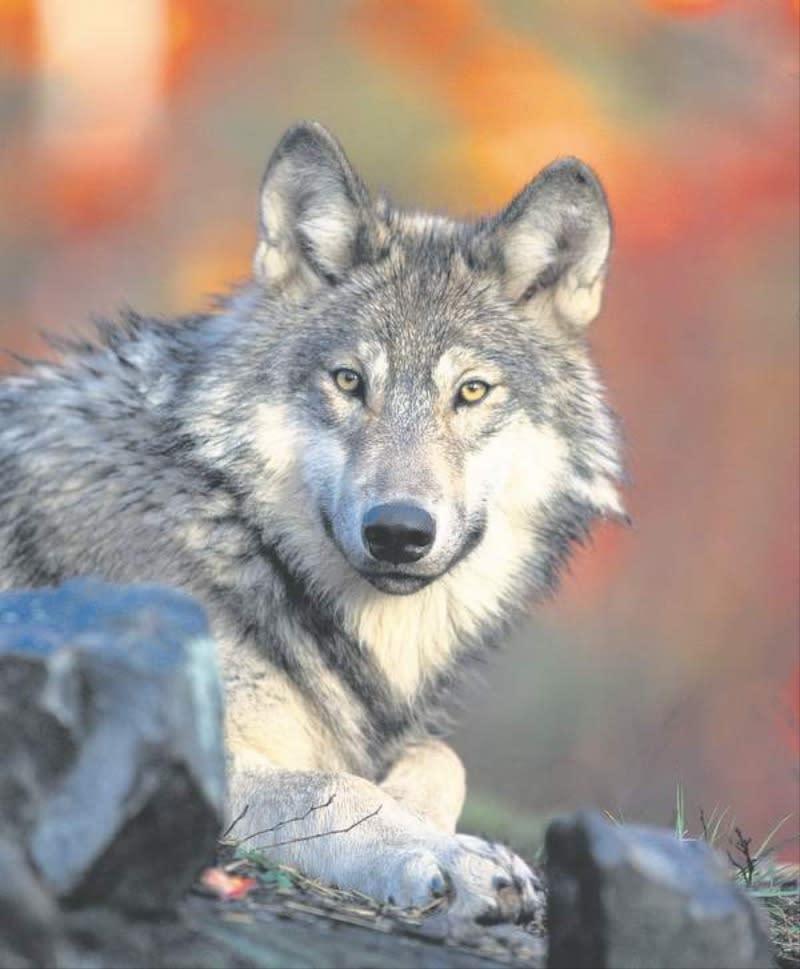
A gray wolf is pictured in this undated file photo.
William Campbell/USFWS
One of the most ideal places in the world to bring back gray wolves is right here in the Pacific Northwest, according to
.
Researchers have found bringing the large carnivores back to the Olympic National Park in Washington could greatly help the ecosystem — and the predators.
“Sometimes the carnivores can have very profound impacts on the environment — because they sit at the very top, or apex, of the food web, their effects can ripple down,” said William Ripple, an ecologist at Oregon State University and the study's co-author.
Large carnivores around the world are running out of habitat — 64 percent of these predators are also threatened with extinction, according to the study.
That’s one reason researchers wanted to find some of the best-protected areas to think about bringing back these wildlife, or rewild them. Rewilding is a more holistic approach to reintroduction that also takes plants and other animals into account.
“We’re trying to help put back the pieces that we’ve removed from nature,” Ripple said.
Out of 130 potential places examined in the study, two of the highest rated spots were the Florida Everglades and Washington’s Olympic National Park.
Chris Wolf, the study’s lead author, said the Olympic National Park had a few things going for it.
“Things like availability of prey for the large carnivore, as well as measure of human impacts in and around the reserve,” Wolf said.
Gray wolves have been wiped out in the park since the early 1900s. Since then, an overabundance of elk have trampled plants and led to riverbank erosion.
That’s something that could be corrected with rewilding gray wolves in the park, Wolf said.
“A lot of reintroduction attempts for large carnivores, it tends to be somewhat of a last-ditch conservation effort or targeted toward large carnivores that are likely to go extinct. But rewilding can be an important way to preserve these species’ ecological effects,” Wolf said.
The study was published in Royal Society Open Science.
